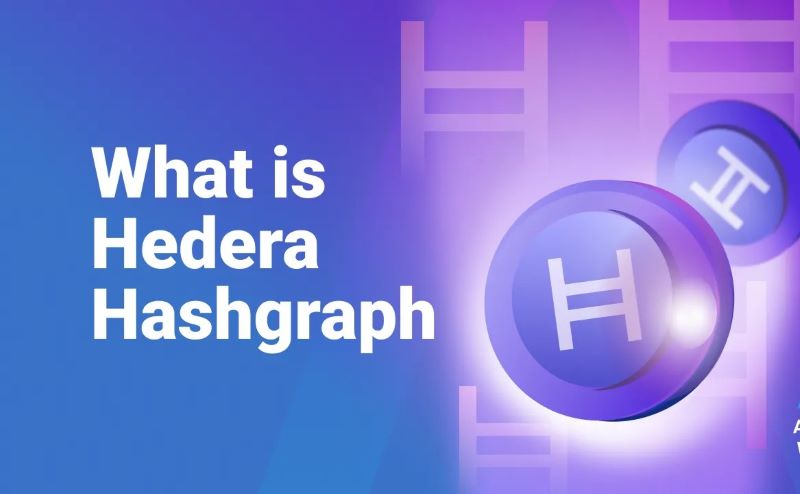Discover hedera hashgraph public networks, the next-generation distributed ledger technology that’s redefining speed, security, and scalability.
What is Hedera Hashgraph?
Hedera is a public distributed ledger designed for the development and deployment of decentralized applications and microservices. It’s open to all, from individual developers to large enterprises, providing a platform for building and running various applications.
Unlike traditional blockchains, Hedera’s underlying technology, Hashgraph, is not based on a linear chain of blocks. Instead, it’s structured as a graph, where the speed of transaction verification increases as more transactions are added. This unique architecture sets Hedera apart, offering potentially faster and more efficient transaction processing than traditional blockchain systems.
Is hedera hashgraph public networks?
Hedera Hashgraph is a public network. It is an open-source, public distributed ledger technology (DLT) that utilizes the hashgraph consensus algorithm. Anyone can use the network without needing permission from Hedera.
The hashgraph consensus algorithm was initially designed for private use, but Hedera Hashgraph is the first iteration of the algorithm used in a public network. This means that it combines features of both public and private blockchain networks, providing benefits like high throughput, fast finality, and low fees while maintaining security and decentralization.
How does Hedera Hashgraph work?
Hashgraph Data Structure: Unlike traditional blockchains that use a chain of blocks, Hedera employs a hashgraph structure to group transactions. This innovative structure claims to enable faster and more cost-effective transaction processing. Since its 2019 mainnet launch, Hedera has consistently exceeded 10,000 transactions per second (tps) for standard HBAR token transfers, validating its claims of superior performance.
Smart Contract Support: Hedera supports Solidity, the same programming language used for smart contracts on Ethereum. This allows developers to easily migrate or build new smart contracts on Hedera, leveraging their existing skills and knowledge.
Governance by Council: Hedera Hashgraph is governed by a council of up to 39 prominent global organizations known as the Hedera Governing Council. These members operate mainnet nodes and have equal voting rights on network and platform decisions. This unique governance model ensures decentralized decision-making and a broader range of perspectives in shaping the platform’s future.
What is the HBAR token?
HBAR, the native cryptocurrency of Hedera, serves as the fuel for powering decentralized applications (dApps) and ensuring the network’s security. Its energy-efficient design aligns with Hedera’s commitment to sustainability. Users utilize HBAR to pay for transaction fees associated with running dApps and interacting with the network, while also staking HBAR to contribute to network security through a proof-of-stake consensus mechanism.
Detailed information about HBAR Token
HBAR Key Metrics
- Token Name: HBAR.
- Ticker: HBAR.
- Blockchain: Hedera Hasgraph.
- Token Standard: Solidity.
- Token Type: Utility, Governance.
- Total Supply: 50,000,000,000 HBAR.
- Circulating Supply: 14,832,972,491 HBAR.
- Transaction per second: 10,000+.
- Average Fee: $0.0001.
- Transaction Confirmation: 3-5 seconds (w/finality).
- Energy user per transaction: 0.00017 KWH.
HBAR Token Allocation
- Hedera Pre-minted Treasury: 32.4%.
- Ecosystem Development: 24%.
- Purchase Agreement: 17.4%.
- Founders & Early Executives: 13.8%.
- Swirlds: 8%.
- Employees & Service Providers: 4.4%.
How to get HBAR Token
Purchasing on Exchanges: You can buy HBAR tokens on popular cryptocurrency exchanges like Binance or Gate.io. These platforms allow you to exchange other cryptocurrencies or fiat currency for HBAR, making it easily accessible for those looking to invest or participate in the Hedera ecosystem.
Staking Rewards for Validators: If you operate a validator node on the Hedera network, you can earn HBAR tokens as a reward for your contribution. Validators play a crucial role in maintaining the network’s security, processing transactions, and providing storage. By staking your HBAR tokens and participating in the validation process, you not only support the network but also earn passive income in the form of HBAR rewards.
Visit Solution of Blockchain for expert insights, comprehensive guides, and cutting-edge solutions to harness the power of this next-generation distributed ledger.



